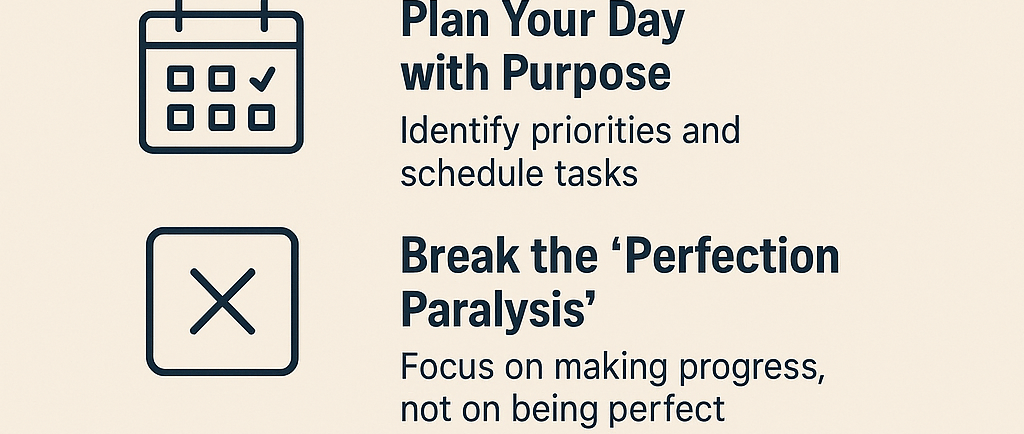How to Get Things Done Proactively: A Guide to Taking Charge of Your Life


In today’s fast-paced world, waiting for the “right time” or reacting only when problems arise can put you far behind. Proactive people, however, lead the game. They anticipate, prepare, and act before situations demand it. This mindset doesn’t just increase productivity—it empowers you to shape your life deliberately rather than just survive it. Here’s how you can cultivate proactive habits and truly get things done.
1.Shift from Reactive to Proactive Thinking
Reactive people respond to events. Proactive people initiate them. The first step is recognizing where you tend to wait for instructions, deadlines, or crises. Instead, ask yourself daily:
“What can I do today that my future self will thank me for?”
This could be finishing a task before the deadline, reaching out to a potential collaborator, or addressing a small issue before it becomes a bigger one
2.Plan Your Day with Purpose
Proactive people don’t just let the day unfold—they direct it. Start each morning (or the night before) by identifying your top 3 priorities. Use tools like to-do lists, planners, or digital apps (like Todoist or Notion). But don’t just list tasks—rank them.
Ask:
What is urgent?
What is important?
What moves me closer to my long-term goals
Time-block your calendar to protect deep focus hours for high-impact tasks.
3.Break the “Perfection Paralysis”
Perfectionism often disguises procrastination. Proactive people favor progress over perfection. If a task feels overwhelming, break it into smaller, doable chunks. Start messy, improve later. Remember, done is better than perfect.
4.Use the 2-Minute Rule
Coined by productivity expert David Allen, the 2-minute rule says: If it takes less than 2 minutes, do it now. Responding to a message, organizing a file, or sending a follow-up email—these micro-actions done consistently reduce the weight of piled-up work.
5.Anticipate Problems—Then Pre-solve Them
Proactive people play mental chess—they think two moves ahead. Before starting a project, ask
What could go wrong?
What will I do if it does?
Who do I need help from in advance?
This habit builds resilience, reduces stress, and gives you more control.
6.Reflect and Adapt
At the end of each week, ask:
What did I do proactively?
What could I have done earlier?
What systems need improvement?
Reflection turns scattered actions into consistent growth.
Final Thought:
Being proactive isn’t just about doing more—it’s about doing what matters, before it matters. It’s a mindset shift from reacting to creating. When you anticipate challenges, act with intention, and move without external prompts, you become not just productive—but powerful. Start small, stay consistent, and let your actions lead your outcomes.b
